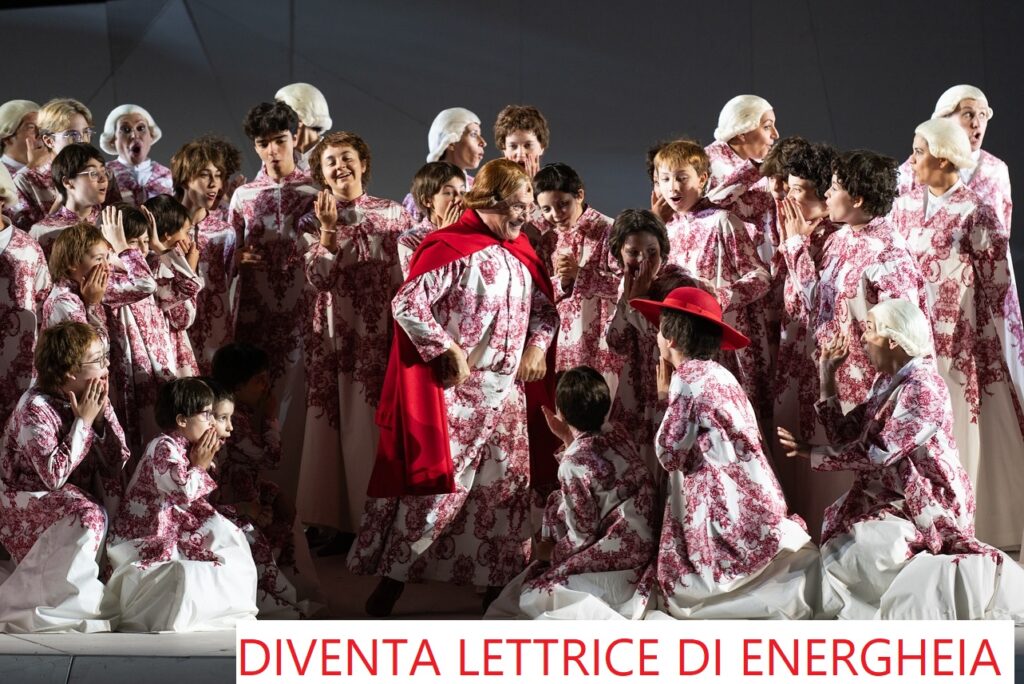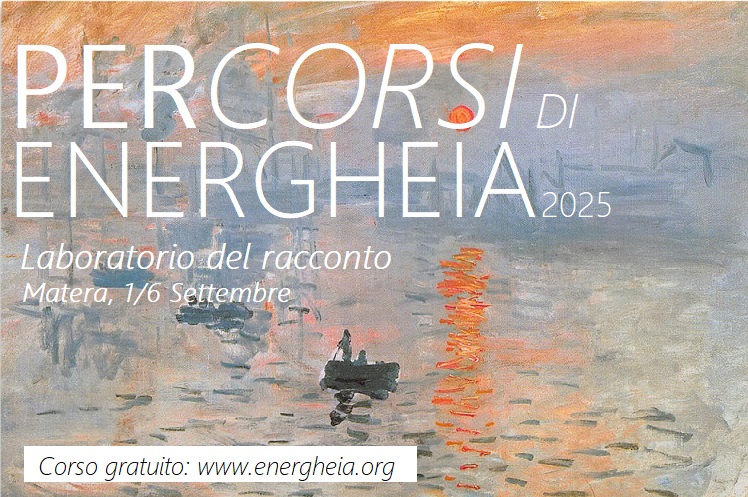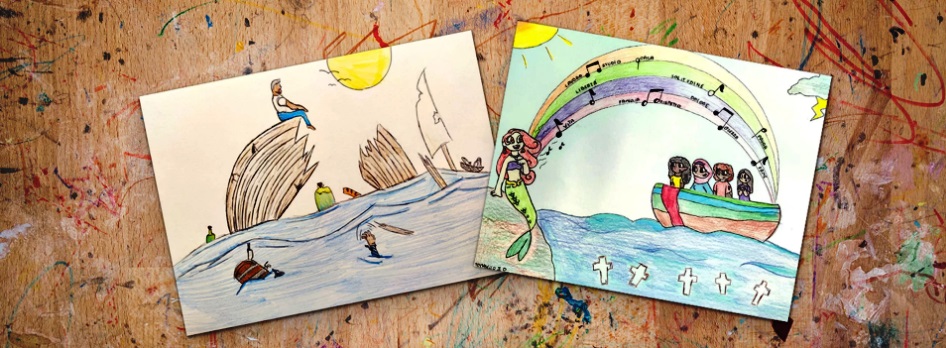Unforgivable moments_Lawrence Lentilalu
I woke up from the bed one early morning to prepare myself for the usual
work of collecting the wild fruits in the jungle. I stood at the door of
our nkaji 1 (hut), to accustom my eyes with the blending brightness of
the dawn. It was a warm, dusty morning, and the thorny acacia trees
swayed incessantly in the breeze. The sun was rising gradually from the
eastern horizon like a red ball of fire, giving the landscape a typical characteristic
of a tropical desert.
I walked down the sandy meadow towards the lonely jungle. I was carrying
a hairy leather bag on the left shoulder. I anticipated picking every
single berry, which might have fallen by the shaking of the winds. When
I approached a cluster of shrubs, something peculiar flashed at my eyes.
At first, I did not decipher how it looked like and this led me to gaze at
it with harmless contempt. Precisely, the desire for the berries however
inspired me to forget the insidious object.
For that reason, I dashed forward and before I had covered a safe distance,
I noticed something like a huge log. Admittedly, the forlorn figure
had assumed the posture of a resting body. It was leaned poignantly
against the trunk of a productive wild berry tree, which grew at the
loose bank of a seasonal river. It was wrapped tightly with a tattered blanket.
Besides, its legs stretched distinctly along the gentle slope of the
riverbank. It was so much conspicuous that any hungry African boy searching
for the wild berries could easily spot it. Virtually, I had a difficulty
to ascertain if the body was really dead. I tried to jump over it but I ac-
cidentally trod upon it. Then a brown dust coated my body head to toe,
and I was momentarily as blind as a mole. I shook it off and clenched
my rungu, (a wooden-weapon with one end round) tightly in the right
hand. Definitely, I was not prepared to fight other than defending my
life in case the strange figure turned ferocious. In the recent past, my
mum was fond of telling me some frightening tales with animal characters
such as ghosts, ogres, lions, hyena, and hare. I was quite certain
however that my mum loves me and she did not mean to scare me. Perhaps
she had predicted that I would one day come across a corpse, yet
I feared it altogether.
Later on, I detected a white form oozed from the nostrils and the mouth.
Alas, it was a dead body. Of course it was a dead young woman. Fear
then gripped me and I took a short shallow breath of relief. Concurrently,
I hardly withstood all what I saw. In that case, I had a nerve-wracking
moment that had transformed my audacity into incapacity to overcome
the danger. With a loud shriek of horror, I jumped backward relentlessly.
The edge of my small loincloth swayed and hooked to a bending branch.
My legs trembled and I could not conceal the neuralgic panic. Immediately,
I stood aimlessly while my lower lip was tightly curled under
the incisors teeth in anxiety. I moved away from the corpse and stood
watching indecisively. Everything was then in flaw. I explicitly sensed
that my thwarted mission to collect the fruits had come to a standstill.
The whole gathering program hence was extremely barred.
As the sun grew high, air became calm and warm. The surroundings then
became deserted and everything was enclosed in solitude, which was
exaggerated by the presence of the dead body. Then I walked down the
path that led me home. Our manyatta (a Samburu residence, circular in
shape, and fenced with thorny branches to protect themselves and their
livestock) was situated on a cleared ground. When I arrived home, I saw
my mother at a distance and she entered the manyatta and head towards
the hut. She had my younger sister on the chest and a pile of firewood
on her back. Generally, it had been the duty of the women to fetch water,
collect firewood, look after the livestock, and prepare meals for the
family among other chores. On the contrary, my dad spends most of his
time sited on a three-legged chair, playing ntotoi, a traditional game played
with small stones. He habitually takes part in marriage negotiations, settling
disputes, and protection of the family against cattle rustlers. Some
of his responsibilities however take place hardly ever.
At once, an idea struck my mind. Firstly, I thought it wise not to pester
the working mother. She must be tired, thirsty, and hungry under the hot
sun. Secondly, I considered reporting the problem to the custodians of
the law and order. Conversely, I preferred to leak the mystification to
my mum because of the absurd fear of the disciplinary dad. Indeed, I
had known him for rigid servility especially in issues pertaining to ethnicity.
“Are you fine?”, my mother said with concern. Perhaps she had
guessed my unhappiness through unusual silence. “Is everything fine?”,
she said. I scribbled on the ground like an earth norm. No word, no response.
Silence persisted. Then she stretched her left hand and tapped
me on the head to draw my misplaced attention. “I am fine mum”, I answered
awkwardly. I was unable to gather the appropriate words that
could make her understand my predicament. At that moment, I sensed
the contradiction in my words. I had also expressed myself with jumbled
thoughts and feelings although she was adept to estimate what I
meant. “but you seem to be disturbed”. she was surprised.
I tentatively told her about the corpse laid in the jungle. “That was the
body of a girl who was forced into an early marriage”. She picked the
answer at once. “This group of village men”, she continued, “had
bartered the girl for an exchange of cows, money, liquor, and blankets.
At that time, men drank muratina – a local brew – in order to negotiate
for the marriage down payment”.
Customarily, a girl was regarded as a source of wealth while a boy
dominated the higher caste as an inheritor. When a family had girls, it
is regarded as rich. It had been a common practice that the council of
elders forces the young girls into early marriage. This system constitutes
what is called nkauti (dowry), which is mostly a contract that involves
the whole community, rather than the married couples. This kind of marriage
is bound by the value of the dowry instead of love.
Payment of dowry, of course, could be damn expensive but it should
never be equated with the life, rights, desires, and freedom of the girl.
Later on, the girl discovered an enigmatic marriage arrangement and she
did not accept to be the sixth wife. “She thus decided to drink poison.
She committed suicide”. My mother said, and then paused. Finally, she
added that the dead woman was thrown into the bush.
I felt distasteful as I listened without interruptions. “Such unmarried
woman could not be buried suitably and worst still; she was a victim of
suicide”, she added. I could not resist the venomous hatred. “She was
regarded as an out cast, an abominable and possessed by the evil spirits”,
my mum said. Then, she kept silent, shook her head, and looked at
- She must have noticed bitterness in me. I wondered thus far why
the village elders had failed to conduct a proper community burial.
Then my mum interjected. “That is our culture!”, she paused. From that
very moment, I had really gotten the glimpse of the truth. Yes, it is our
traditions, which yearn for the patriarchal sensitivity. Then I took long
breath to reflect upon such unjust generation that had failed to yeld refined
cultural order, which could ultimately transform the unpromising
social standards. I was thereby filled with displeasure that ultimately made
me feel exhausted. Finally, as the atrocious commentary passed by, I became
aware of the unproportioned gender imbalance and unreasonable
way through which the dead woman disposed. The cool evening breeze
swept across the dust terrain of the land, while the sun slipped splendidly
down the distant horizon.
Unfortunately, there was no room of my own. I had no private room to
rest except the common circular grass-thatched hut. That in fact, was
the only available space, regardless of size, where the whole family members
claim their rights. The bed was a rectangular structure, fifty centimetres
above the ground. It was made up of wooden materials while
the bedding was a hide of a bull recently killed by a scrawny lioness.
Oftentimes, the bed could be turned to serve the purpose of a dining table.
In such traditional setting, nothing could be scorned, although one thing
was certain, that is, to squeeze myself between the siblings yet no one
could ever complain for congestion. After that, I collapsed into the bed
and lay under the black batch of soot hanged from the top of a roof. That
very moment, a whirlwind blew the grass on the roof leaving wide
gaps. The fire was glowing maliciously and the ashes had been spread
almost all over the hut. The rays of the sun mixed with clouds of smoke
then stretched leisurely into the dim hut through a perforated roof. There
was neither housing insurance nor a guarantee for an indemnity in case
of natural disaster.
Meanwhile, a starved bedbug was apparently a big nuisance to me while
its friend; Mr. Cockroach was hastily rummaging calabashes for food.
No one had provided him with a clue that I collected nothing, which could
be worth sharing. In spite of countless difficulties, I lastly felt secured
and incredibly relaxed. Then my mother gave me a calabash of sour milk
for an evening meal and I gratefully drank it all. Coincidentally, I
yawned, and breathed heavily, after which I snored like a cat. Truly, I
had eaten like a pig and slept like a child.
I was subsequently haunted by harsh fantasies of a ghost. In fact, I
could not find out how it looked like but I still remember its brutality.
It chased and pushed me down a steep cliff. Everything seemed loosely
fitted. Additionally, I felt weightless, yet nothing could support me.
My feet sank into the loose sand. After along struggle, of push and pull,
I staggered over a monumental anthill. Then, I endeavoured to run for
my life but my legs could not carry me.
Consequently, an ominous numbness suppressed my strength. I was absolutely
weak and neither able to jump over the bordering gully nor divert
to a safer direction. Regrettably, it was too late for me to run away
for safety since the ghost had already trapped me ferociously and lashed
me out into an overhanging acacia tree. Afterwards, frailty overwhelmed
me and I found myself hanging at the middle of the great towering cliff.
The ghost had exposed its spiky teeth in readiness to chew me up.
“Waaaahh! Waaaaahh!”, I screamed sonorously. After a while, I watched
my crucial body being dragged mercilessly by the ghost between its teeth.
Luckily, it was a dream, nevertheless.
The next few hours, I spent the nap in a nauseating mood. No part of
my sleep was joyous anyhow; it was dominated entirely by inadequate
vigour. The whole sleeping process was rather a collection of scaring
memories, which were instigated probably by the formidable dead body.
Suddenly, I stepped down and knelt miserably behind the three-stone
fire. Thus, I was apparently sodden with sweats and my skin irritated.
It was morning, another gleaming sunrise, announced by the vigilant cock-
erels and the sky was clear. The birds were shimmering their melodious
songs at the surrounding bushes. Shortly, I sneaked into the scene
to observe curiously what might have happened to the dead body. What
I saw filled me with unprecedented premonitions. Several yards away
were some crushed berries spread all over. Evidently, the berries were
contaminated with human flesh.
Everything was thus soaked beneath the putrefied body. The natural purplish
colour of the fruits had therefore turned brownish depicting an extreme
stage of decomposition. I ultimately began to be more concerned
with the wrecked corpse rather than the fruits.
Admittedly, I saw a footpath of a beast, which had dragged the corpse
into the bushes. I thus extended my look across the sideways of the bushes.
Suddenly, I sighted a family of hyena. The male hyena was conspicuously
chewing a bone while the rest of the family was audibly laughing
in concealment. Surprisingly, I saw a jackal carrying a bone between
its canines. I took a dim view of its baked surface. Undoubtedly, it was
a fibula. I was scared further by the presence of the appendages that extended
to form a human foot.
Nothing of course could have persuaded me into forgiving the jackal
although its brother hyena bears the greatest blame. The scattered bones
had therefore made me apathetic. At worst, some vestiges had become
as black as charcoal and a horrific odour became unbearable under the
scorching sun. Moreover, a swarm of houseflies had covered the corpse
completely to siphon its dampness. Then a plump housefly with a
swollen abdomen hummed noisily on my face as if to warn me off going
nearer to its meal. I did not heed the warning, anyway. I thought that
the insects have enjoyed a petrifying meal at my expense. Thereafter, a
bad smell fumed into my nose. I held my breath to avoid breathing in
the horrible stench. Immediately, I felt a strong sensation to vomit since
I had developed an aversion to inhaling anything in such unpleasant environment.
In the end, I pessimistically underestimated my success.
Until then, I had lacked heroic confidence to burry the dead body. I had
otherwise considered it awkward yet the necessity for a proper disposal
lingered in the mind.
I began to ask my self why the body was placed on that particular place.
I presumed that the corpse was intentionally put there in order to discourage
me from collecting the fruits. Logically, I considered not to blame
anyone of ignoble negligence but animosity was reserved in my subconscious
mind, nonetheless. My thinking capacity was interfered with
and I could no longer continue with the task. I became confused and undecided.
A gnawing dilemma had eventually taken away my hope of extending
the search for the fruits.
For the meantime, I had no option but to hurry back home. Then I bent
my back to enter into my mothers’ hut. Actually, some pieces of a broken
calabash had littered the entrance making my movement a little difficult.
Cautiously, I sat and leaned my back despairingly against the wall.
The wall was smeared with cow dung, which gave it a rough texture. In
a while, I coiled my head between the knees. A housefly strayed into
the house and landed softly on my mother’s chin. It indignantly reminded
me of the previous one that buzzed on my face. I was very impatient as
my mother paused to slap it away. I then changed the sitting position. I
squatted and supported my chin with cupped hands. Nothing interested
me; no part of my time was active. At best, my mum showed me some
filial companionship that broke my calmness.
My mum had sat on a hairy goat’s skin cleaning calabashes with a spicy
smoke as a disinfectant used commonly by the nomads. She had been
fond of taking care of the calabashes, which she used often to milk the
cows. She milks them twice a day morning and evening. Alternatively,
she had approached 70’s but still kept her work schedule consistent. Resting
had never been her hobby and I almost always see her doing some
work that might have been forgotten undone. Despite of her physical
degeneration, she was admiringly beautiful. She was adorned with
colourful beads, and copper bracelets. But one thing was sure about her,
the smile she gave even in the midst of tragedy, yet I rarely return it back.
Beyond doubt, my mum had an instinct maternal love for me. She was
actually a source of comfort to me during that period of mayhem. I must
therefore acknowledge her presence. “My son, please bring us some water
from the stream”, she asked. “Yes mum”, I agreed with a nod. She
must have been tired and thirsty splitting firewood in the jungle.
That very day, she went hurriedly into the boma (an enclosure fenced
with thorns to restrict the movement of the livestock) with a rope and a
calabash in her hands as her normal routine. It was late in the evening
and the dairy cows were waiting patiently for the usual milking process.
I followed her quietly and stood listless and listened admiringly to the
mooing of the cows. The hungry calves on the other hand were busy
jostling in the pen waiting for their usual ration of milk. I knew of
course that they were unhappy about my mum’s tendency of snatching
them their mother’s milk. If cows of course had lawyers, my mum
would have been convicted of harassing the minor. Without wasting time,
however, I took a medium sized calabash and headed towards the stream.
The journey was nasty, even as the burning sun could not allow me to
walk further. I therefore took a rest under the shrubs which was the only
safe way to avoid the burning heat.
In few minutes later, I moved to the water source. The pathway became
narrower and straighter with some shrubs on its sides. At the end it seemed
to peter out in perspective while “Liyo” (mirage) was shinning visibly
yet indistinctly difficult to go closer. Truly, it looked a layer of water at
a far distance. Culturally, mirage gives an impression of faint hopes, unrealised
ambitions, and unattained relationship. This is rather a supplementary
realism which the Samburu community purportedly considers
being a symbol of loneliness, and isolation. Yes, solitude crept into my
consciousness. Subsequently, the hooting of the doves soothed the loneliness
in the waterside. I squatted at the edge of the water ready to
quench my thirst. Unexpectedly, a fat frog kicked its way in fear of the
approaching traitor.
Conversely, I was surprised to recognize that something shapeless and
stinking was floating at the surface of the tranquil water. Suddenly,
without warning, a bad smell betrayed the spewed flesh. Certainly, I realized
that it was the constipated hyena that had vomited into the pool.
I was overly disgusted. The spongy texture of the rotten stuff reminded
me of the decayed body. In fact, the weird thing shocked me. It smelt
like a rotten egg. No matter how it was, nothing could have put me off
quenching my thirst or takes some water home. Down deep into the water,
I saw my image. It rippled rhythmically with the buoyancy of the
waves. If reflection, by the way, could really speak the truth, I saw my
facial haplessness down in the pool. The Samburu superstitious truism
“meata nkare paya” (naturally, water has no stench) however inspired
me to drink water despite of the presence of the stinking fleshy tissue.
Instantly, I scooped water with a calabash. Instead, a foreign object filled
the calabash and with a deep sigh, I subsequently let it go and it hence
fell back to the stream with a splash. I turned backward and the optimism
to quench my thirst was put to a sudden halt. At that time, I took
a step backward and subsequently ran very fast like a crazy boy chasing
a straying beetle.
Obliviously, a stump hit my toe. I flopped and abruptly fell into the mud
with a thunder. I suddenly found myself sprawling helplessly with an
injured head. I groaned unconsciously, completely drenched by the spattered
water. I was weak and unconscious. When I opened my eyes, several
people were gathered around me. Among them was a woman dressed
with white; a nurse. She had worn a white dress and a scarf on her head.
Some of the other people craned above me to examine every detail of
the wound. In fact, I was however concerned with the odd place and the
strange woman who nursed my wound. She gave me some tablets to swallow
after she had finished injecting me with a drug.
In fact, I was amazed by the extraordinary place. “Ma’am”, I said.
“Which place am I?”, my mother said. The roof was made of glossy iron
sheets, stony walls that were painted blue. The metallic bed was cosy
but narrow as compared with the traditional one. “ou collapsed and a
Good Samaritan, Mrs. Naanyu, gave you a first aid before she called
for assistance”, she added.
In reality, I did not know the Good Samaritan woman, as alluded by my
mother, even in the past days, but I could not doubt her kindness. Mrs.
Naanyu, our neighbour, took the chance to describe how I got there. “I
was behind you when you fall over a stump”, she said. She explained
that I had fallen on the stump and landed on my head. The centre of an
accident was virtually rocky and my forehead was cut by an edge of a
stone. Mrs. Naanyu then dropped her calabashes and came hurriedly to
rescue me. She then tore my cloth and placed a rag on an opened wound
to stop bleeding. The blood was dripping down my cheek to the ground.
It flooded uncontrollably, particularly in such a hottest hour of the day.
Mrs. Naanyu then gave me some first aid before she called for help. She
had raised an alarm and a big crowd of people arrived immediately at
the spot. “We, in the end, brought you here for treatment in nearby dispensary.
But do not worry, my son, everything will be fine”, she replied
calmly. Undoubtedly, I trusted these women and in view of thet, I did
not want to bother them. My mum in particular had great curiosity to
know the cause of the accident but she was aware of my feeble state.
Then, I stayed there for about three hours. Finally, I was discharged as
soon as I got better. Indeed, I will never ever forget that horrible incident
in my life.
(1) nkaji: This is a Samburu dialect, of a nomadic community, belonging to plain nilotes,
living in the northern part of Kenya.






